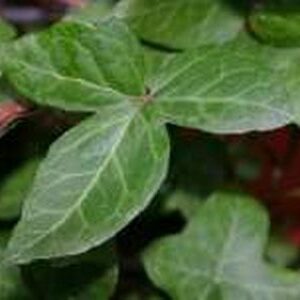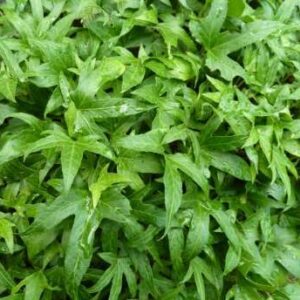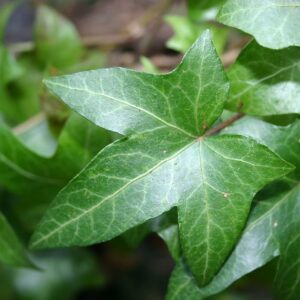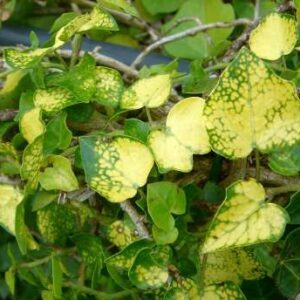Hedera helix 'François Battet' - Ornamental ivy
Hedera helix 'François Battet' - Ornamental ivy
Vigorous variety with few branches.
Fine cream variegation at the edge of the leaf blade, with more pronounced patches in places.
Red mottling in winter.
17.90 €
Description
Ornamental ivy - Hedera helix 'François Battet
In a nutshell
Ivy, Hedera helix 'François Battet', is a vigorous variety with few branches.
The leaf, 5 to 6 cm wide, is composed of 5 faint lobes.
The fine cream variegation is at the edge of the blade, with more pronounced patches in places.
The green center takes on red mottling in winter.
The question of circumstance ...
When should ivy be pruned?
Ivy can be pruned at any time, but we recommend late winter. In principle, one pruning a year is sufficient. If you want to keep the ivy at its current size, cut back its length and thickness by the equivalent of the annual growth.
If ivy has not been pruned for several years, you can afford to do some severe pruning. Ivy tolerates this very well.
If you use ivy as a topiary, two or three annual prunings may be necessary to keep it in good shape.
Avoid pruning during the nesting season to avoid disturbing birds that may have nested in the ivy.
Technical details - Hedera helix 'François Battet
Botanical information
- Family: Araliaceae
- Genre : Hedera
- Species: helix
- Cultivar: 'François Battet
- Pierot classification: variegated ivy, type ivy
- Foliage stage: juvenile
- Species origin: Europe, from Spain to Norway, but little on the Atlantic coast.
- Cultivar origin: discovered by François Battet for Olivier Arcelus
Description of Hedera helix 'François Battet
- Growth habit: creeper
- Number of lobes: usually 5 lobes
- Leaf length: 6 cm
- Leaf width: 5 to 6 cm
- Leaf color: several shades of green, with creamy variegation on the edges
- Color variation: red mottling in winter
- Color of veins: light green
- Stem and petiole color: pink
- Stem: lightly branched
- Hairs: stellate, 3 to 5 branches
Advice on planting, cultivation and care of Hedera helix 'François Battet'.
- Exposure: shade, part shade
- Hardiness: -15°C
- Soil moisture: cool soil
- Soil PH: neutral or calcareous
- Soil type: all
- Soil richness: ordinary or humus-bearing
- Use: ground cover, climber
- Development: vigorous
- Pruning: once a year
- Pests: very rare (red spider mites, scale insects)
- Diseases: very rare (leaf spots)
Further information
| Weight | ND |
|---|---|
| Foliage | White variegation |
| Usage | Ground cover, Climber |
| Classification | Ivy type, variegated |
Only connected customers who have purchased this product can leave a review.





Opinions
There are currently no product reviews.